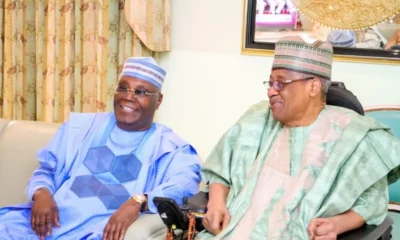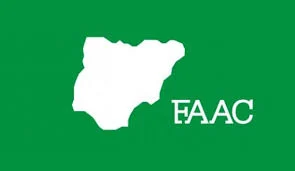Business
Nigeria’s bank chiefs: Big salaries, luxury homes, but tiny stakes

When Roosevelt Ogbonna, chief executive of Access Bank, reportedly bought a $20 million home in London, it raised eyebrows — not for the purchase itself, but because the market value of his personal stake in Access Holdings, the listed parent of the bank, is less than the price of the house.
That contrast has reignited debate about whether Nigeria’s bank chiefs have enough “skin in the game” — the personal financial stake that ties their fortunes to the shareholders they serve.
In developed markets, from Wall Street to Hong Kong, it is not uncommon for a big-bank CEO to have tens or hundreds of millions of dollars in their own institution’s stock.
In Nigeria, by comparison, the numbers look modest.
What Nigeria’s top bank CEOs’ stakes look like
A review of 2024 annual reports, updated with 2025 insider purchases and valued at today’s NGX closing prices (2 Oct 2025), shows the following:
| # | Bank | CEO | Shares owned | Value at today’s price (USD) | % of bank owned |
|---|---|---|---|---|---|
| 1 | Zenith Bank | Adaora Umeoji | 160,460,000 | $7.5 million | 0.39% |
| 2 | UBA | Oliver Alawuba | 124,322,930 | $3.6 million | 0.36% |
| 3 | Sterling Financial Holdings | Abubakar Suleiman | 599,984,442 | $3.14 million | 1.15% |
| 4 | Access Holdings | Roosevelt Ogbonna | 158,494,589 | $2.78 million | 0.30% |
| 5 | GTCO | Segun Agbaje | 32,146,651 | $2.05 million | 0.68% |
| 6 | Fidelity Bank | Nneka Onyeali-Ikpe | 94,644,260 | $1.3 million | 0.19% |
| 7 | First HoldCo | Wale Oyedeji | 34,847 | $0.0007 million | 0.00008% |
A signal investors watch closely
To many institutional investors, a CEO’s personal stake is a gauge of alignment: the bigger it is, the more the boss gains and suffers with ordinary shareholders.
In countries such as the US, Britain or South Africa, it is common to see CEOs retain or build holdings worth tens or even hundreds of millions of dollars — even when they receive large cash pay.
In Nigeria, by contrast, most bank chiefs still hold shares worth just a few million dollars — often less than a year’s bonus or, as in Ogbonna’s case, less than the cost of a personal real-estate acquisition.
Some analysts say the gap reflects the sector’s history: many Nigerian banks were recapitalised or restructured over the past two decades; today’s leaders often inherited rather than founded their institutions and have had only a few years to accumulate stock.
Others argue it reveals a cultural tilt toward property over equity and the limited long-term stock-based pay in Nigerian banking.
Why the gap matters
As the Central Bank of Nigeria pushes a fresh recapitalisation drive, boards and investors will be watching whether more insiders increase their holdings.
Some — notably Umeoji at Zenith and Alawuba at UBA — have bought shares on the open market this year, which market watchers see as a confidence signal.
Still, the overall picture contrasts sharply with global norms.
Where a Wall Street bank chief may have hundreds of millions of dollars of personal stock at risk, Nigeria’s bank bosses mostly hold less than $10 million — in some cases less than the value of a single overseas property.
For now, the gulf between the price of a London mansion and the size of a Nigerian CEO’s personal stake in their bank stands as a vivid symbol of how far executive ownership traditions in the sector still have to go. (Billionaires Africa)
-

 Politics5 hours ago
Politics5 hours ago2027: IBB meets Atiku, Makinde
-

 News20 hours ago
News20 hours agoBREAKING: Senate approves electronic transmission of results, permits manual upload as backup
-

 Business6 hours ago
Business6 hours agoFX market gap widens first time in three years
-

 News5 hours ago
News5 hours agoThe increase in phone snatching and the need to curb the menace
-

 News6 hours ago
News6 hours agoStates pay N455bn to service foreign loans
-

 News5 hours ago
News5 hours agoJudicial corruption worse than armed madman – NBA
-

 Business5 hours ago
Business5 hours agoNigeria’s food import waiver cut prices and wiped N5trn off farmers’ incomes in 2025
-

 News6 hours ago
News6 hours agoNigeria to tax 80% informal workforce using presumptive taxes


















